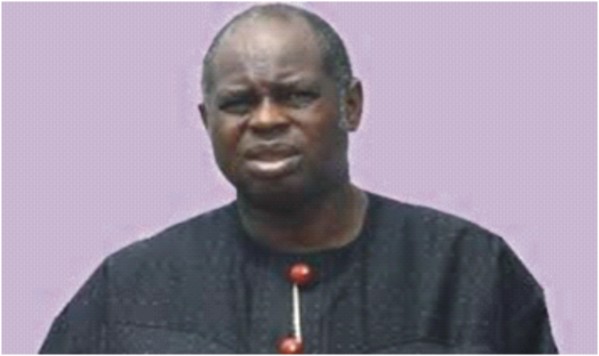By Nnamdi Nwigwe
G.S.M: 08037024609
One cannot stop wondering why our President, Dr. Goodluck Jonathan, with all the good luck that has trailed his political ascendency, appears to have been infested with horrible advisers, who seem not to care a hoot about the “corporate integrity” of this country or the image we reflect in some of the actions taken by the Federal Government.
Typical of such actions is the latest hotchpotch pardon granted to some Nigerians by the President in the exercise of his prerogative as head of state.
Among the beneficiaries is Dieprieye S. P. Alameiseiya, the pioneer civilian Governor of Bayelsa State who was impeached for various offences and was later jailed for stealing after admitting in the open court that he is a thief.
He had earlier fled the country to evade facing the law while he was still in office.
Clad in an Ijaw woman’s garb, the Governor beat the security at the borders and later surfaced in Europe where he was eventually arrested and bundled back to Nigeria.
Thanks to the so-called “plea bargaining”, DSP, as Alameiseiya is more popularly called, (after his initials), disgorged most of the loot he made out of his state, mostly houses, hotels and estates, and in return, got a few months’ imprisonment.
He is said to have served out his prison term and has, technically become a free man.
President Goodluck Jonathan was the Deputy Governor of Bayelsa State when DSP was the Governor.
So, on Alameiseiya’s impeachment he assumed the office of the Governor until the end of their tenure.
Before the general elections of 2009, Jonathan was appointed by his party, PDP, to run as a Vice Presidential candidate to Alhaji Umaru Musa Yar’Adua, who eventually won in a most fractious and opaque manner.
A great soul of noble parentage, the new President, Yar’Adua, admitted to the world that the election that brought him to office was majorly tainted.
Midway in his tenure, Umaru died and his deputy, Jonathan, in keeping with the Nigerian Constitution, again found himself lifted from number two to number one as he became the new president of the Federal Republic of Nigeria and Commander-in-Chief of the Armed forces.
On completion of their tenure in 2011, Jonathan, won the nomination of his party to run for Presidency. He eventually won and it is in that capacity that he now granted an official pardon to some Nigerians, among whom is D.S.P. Alameiseiya whom he calls “my former boss”.
What has really agitated Nigerians and the international community is the pardon extended to Alameiseiya.
Alameiseiya stole his nascent and impoverished state dry. He evaded justice until foreign security operatives apprehended him.
He confessed that he had indeed been a little less than worthy to be a leader.
He was duly punished. Alameiseiya is not a political prisoner like a number of others with whom he was granted pardon.
He is an ex-convict with his records still fresh in the newspapers. Young people still remember the story of the “thieving governor”. So why the pardon?
Spokesmen of the Presidency have tried amateurish rationalizations to justify a patently foolish and provocative action.
There’s no doubt he is a major stakeholder in the politics of Bayelsa State.
In that position, so say the apologists, he has helped in the difficult assignment of placating the restive militants who had made the state and the Niger-Delta zone ungovernable.
To the great and wise advisers, Alameiseiya has generally behaved himself and is qualified to benefit from the prerogative of mercy as exercised by Mr. President.
The truth and reality of Alameiseiya’s pardon is what the United States Government and concerned Nigerians have said:
“It is a set back to the efforts and strivings to fight corruption in the country.”
Some political pundits say the pardon was given to prepare Alameiseiya for appointment to public office or ready him to run for future elections in Bayelsa, possibly as a Senator!
That doesn’t still justify the hasty pardon that can only encourage more malfeasance among the youth if this is the only fate that could befall them if caught.
It’s a great pity that the war against corruption is yet to begin, nearly 15 years since the return of democracy and civilian governance in Nigeria.
The immediate repercussion of this ill advised action of the President is that it has removed him from the moral pedestal from which he can preach against corruption.
The leadership of the National Assembly will be equally culpable if it does not quickly dissociate itself from this action.
The Senate and the House of Representatives can reprimand their principal officers who attended the rubber-stamp Council of State that gave its imprimatur to Jonathan’s proposal.
If the National Assembly is unable or unwilling to do anything, then the Nigerian Bar Association should approach the courts to test the correctness and reasonableness of this provocative granting of pardon to Dieprieye S. P. Alameiseiya.
About The Author
You may also like
-
A FUN FILLED GUINNESS MATCH DAY EVENT IN OWERRI by Kelechi Mejuobi
-
Imo Guber 2027; Eyes on Ihedioha, Nwajiuba, Sam Daddy, Amuchie, Ejiogu, Madumere and Ebere
-
Uzodimma, Hosting of Super Falcons “lmo 7” And State of Sports in Imo
-
Imo Guber and the Charter of Equity Subterfuge
-
As Things Fall Apart Between Ihedioha and Sam Daddy

